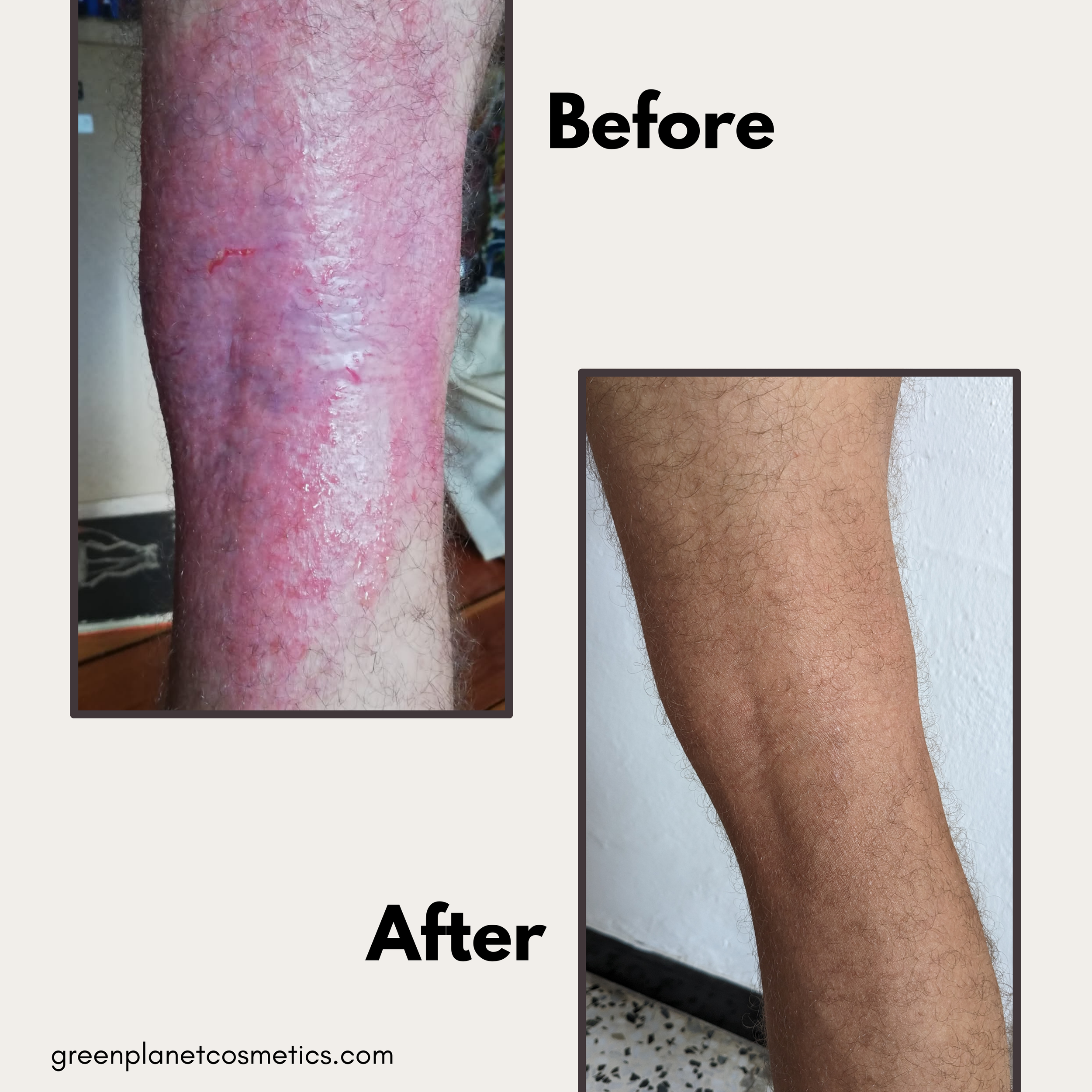
Free Lifestyle Resources & Guides
Holistic Skincare & Wellness Hub
A healthy lifestyle is the foundation of everything - your energy, your focus, and your ability to show up fully for your work and your life. By making small, sustainable changes in your daily habits, you can feel better, think clearer, and create the space to thrive in all areas.
from me to you.
I know we can’t change our habits overnight, you as a single person can’t save the world and i know change is difficult, especially when we’re constantly being brainwashed and manipulated by the industry.
Yet, it is possible and it is important and the best of all, it’s fun and you can make it as lavish or economical as you want. Alone we don’t have much power, but when we all put in a little bit of effort, we can change the world to our likeing. We can literally make it paradise on earth - right now!
This is why i want to share my knowledge and experience with you.
The beginning of your journey to a healthy and sane future will be annoying and sometimes feel like hard work, the middle will be messy, and the result will be pure bliss and enjoyment! Hang in there and you will be rewarded - insight and outside!
What goes into your skincare
Before we discuss better and healthier skincare options, we need to talk about the actual issue with commercial skincare and its ingredients. Once we know the issue, we can find the solution.
For most people it’s too annoying to get into and it feels like “another thing on their plate” and i get it 100%! They practice the “if i don’t see or hear it, it doesn’t exist” - scheme to protect their mental capacity from another “have to do” thing.
here comes the great news, yes, it might be uncomfortable for a second to look into the ugly face of a trillion dollar industry, designed to abuse us, but if you dare to look and to ask questions, you will find the answer and therefor will be able to find incredible solutions for yourself and your family.
You will understand what to look out for, what to avoid, and how to make better and healthier choices. And if you like, learn the art of holistic skincare alchemy with me.
Neurodermatitis
before & after
Struggling with neurodermatitis or stress-related skin issues? Explore how holistic skincare, natural oils, and emotional awareness can help calm flare-ups and support lasting healing - from the inside out.
Start Today
☆
Start Today ☆
Join the club
Gain full access to my health & liefstyle library and my on demand "The basics" courses, valued at 350€.
Bonus
My monthly members class subscription grants you full access to my video courses!
learn how to make your own healthy and effective skincare products at home.
Watch, learn and take advantage for the rest of your life!
FAQs - Lifestyle and Wellness
Is natural skincare better for sensitive skin?
Short answer: Yes. Natural and organic skincare avoids synthetic ingredients, making it much gentler for sensitive or acne-prone skin.Full answer:
Yes. Natural and organic skincare is the best option for all skin types, especially sensitive or acne-prone skin, because it does not pollute your body with artificial components, microplastics or petroleum by-products.Why do moisturisers contain water?
Short answer: Water is mainly used as a cheap filler and to boost “organic” percentage claims, but it does not benefit your skin.Full answer:
Water is mainly used as a filler. Have you ever noticed the slogan “92% organic ingredients” on a label? That usually refers to the water content. Water is technically an organic substance, so it allows brands to make these claims. The product may still contain fully synthesised ingredients, and those are the ones you should avoid where possible.Water itself is neutral. It does not harm or benefit your skin. The concern lies with the lab-made ingredients that accompany it. Used regularly over a long period, they can negatively affect your skin and your overall health.What’s the safest natural oil for beginners?
Short answer: Almond, jojoba, rosehip, marula, coconut, baobab, passion fruit or sesame oil are all safe places to start.Full answer:
You can start with almost any natural oil of your choice. I often recommend coconut oil (solid below about 23°C / 73°F), almond oil, jojoba oil, black seed oil, baobab oil, marula oil, passion fruit oil (my personal favourite), sesame oil or rosehip oil.Watch out for allergies, but otherwise these oils are safe and versatile. Most of them (except black seed oil) also make excellent make-up removers, and many can soothe an itchy scalp too.I have acne. Can I still use oil on my skin?
Short answer: Yes. Oils rich in linoleic acid are light, balancing and anti-inflammatory, making them ideal for acne-prone skin.Full answer:
Yes, absolutely. It may sound surprising, but here’s why.Research shows that acne-prone skin often has lower levels of linoleic acid in its natural sebum. When sebum is low in linoleic acid, it becomes thicker and stickier, which makes clogged pores and breakouts more likely.Oils naturally rich in linoleic acid can help rebalance this. They are lighter in texture, absorb quickly and encourage a healthier sebum composition. This makes the skin less congested and reduces the risk of new blemishes.Linoleic acid also has anti-inflammatory properties. It helps calm redness, soothe irritation, support the skin barrier and promote healing, all of which benefit acne-prone skin.On the other hand, oils high in oleic acid can trigger breakouts if you are prone to them. A good example is the T-zone (forehead, nose and chin), which often produces oil that is naturally more oleic.From my own experience, I love marula oil in hot, dry climates because it is deeply nourishing and long-lasting. But my chin never responds well to it. Other areas, such as my eye contour or my shins after shaving, absolutely thrive on marula oil. It is all about learning what your skin needs.Which are the best natural oils to treat acne?
Short answer: Kalahari melon, hemp seed, grape seed and rosehip oil are excellent options for acne-prone skin.Full answer:
Some of the best options include kalahari melon oil, hemp seed oil, grape seed oil and rosehip oil. The key is to try them for yourself and listen to your skin.For best and fastest results, stop using commercial cleansers and moisturisers while you make the switch. Give your skin at least 30 days to adjust.And if 30 days feels like a long time, ask yourself: what are 30 days compared to the rest of your life? If “quick-fix” miracle products had really worked, you would not still be searching for solutions.What does “holistic skincare” mean?
Short answer: Holistic skincare treats the skin as part of your whole body and lifestyle, not just an isolated issue.Full Answer:
Holistic skincare looks at the skin as part of your whole body and lifestyle, not as an isolated problem to “fix”. Instead of only treating surface symptoms, it focuses on the root causes of skin issues, such as nutrition, stress, environment, and daily habits.It uses natural, non-toxic ingredients that work in harmony with your body’s own healing processes, while also considering your overall wellbeing. In short, holistic skincare is about supporting healthy, radiant skin by balancing both the inside and outside.I have a whole library of articles and video courses focussing on this subject. Sign up to my Members club for the full experience.How do I know that my skincare products are good?
Short answer: Look for short ingredient lists, natural components and transparency. Long, synthetic-heavy labels are a red flag.Full answer:
Good skincare should not only make your skin feel better in the moment, but also support its natural functions over the long term. Look for products with short ingredient lists, natural components and transparent sourcing. If the label is long and filled with synthetic compounds you do not recognise, it is unlikely to be beneficial for your skin.How do I know that my cleansing products are eco-friendly and organic?
Short answer: Choose a traditionally made, unscented soap with a curing time of at least 4–6 weeks.Full answer:
The simplest and safest option is to buy a traditionally made soap, preferably unscented. Unscented soaps can be used on the face and body, even for sensitive or acne-prone skin, and are suitable for people with fragrance allergies.A high-quality soap bar can be recognised by its ingredients and curing time. Like fine wine or cheese, a good soap should cure for at least 4–6 weeks. Aleppo soap, for example, is a timeless classic that can be used for everything: skin, hair, fabrics, even dishes. Many people assume this makes it “too harsh” for the skin, but that is simply a result of marketing.I make my own soaps in different styles — some extra-rich, some light and creamy. If I buy a soap, I always check the INCI list. The shorter the list, the better. I avoid perfume and essential oils and look for a curing time of 4–6 weeks with 5–8% superfat.Liquid natural soaps also exist, but they are harder to produce and store because of their higher water content.I always make my own soaps to my liking. Some extra rich, some light and creamy. If I happen to buy a soap bar I always make sure to check the INCI list on the label. I prefer it nice and easy, so s ahort INCI list without paerfume or essential oils are always my favourites. And of course I make sure the curing period is right and I usually pick a bar that’s between 5-8% superfat.Liquid natural soap also exist but that’s a difficult process and it’s again harder to store over long periods of time, due to its high water content.How often should I shower?
Short answer: Daily showers are fine. The problem is not water, but the products we use during and after.Full answer:
You probably guessed it. Most of us shower to often, using too hot water, and the wrong products during and after showering. The frequency of showering depends more on your lifestyle than on any strict rule. Water itself is not the issue, the real concern lies with the soaps, shower gels and lotions we apply during and after washing. Many of these contain synthetic ingredients that strip the skin’s natural oils, disrupt its microbiome and cause dryness or irritation.It is also worth knowing that you do not always need soap. Substances like sweat or blood are water-soluble and rinse away easily. Soap is only necessary for removing oil- or grease-based residues, or makeup. By reducing the use of soap to when it is truly needed, you can protect your skin’s natural balance.For a gentle and versatile alternative, cleansing clay (known as Wascherde in German) is an excellent option. It can be used on the body, face and even hair. Clay binds excess oil and impurities without disturbing the skin’s protective layer, leaving it clean but not stripped.So, shower daily, if you want but choose your products wisely - your skin will thank you.

